Faculty from Other Disciplines Use Liberal Arts
How do you merge the liberal arts with your curriculum?

Illustration by Getty images © Olena Chernenka
Faculty from Other Disciplines Use Liberal Arts
How do you merge the liberal arts with your curriculum?
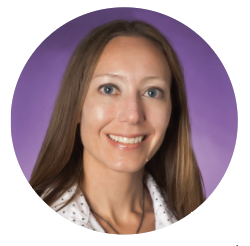 Amorette Hinderaker
Amorette Hinderaker
Associate Professor of Communication Studies and Convener of Debates, Bob Schieffer College of Communication
As the convener of debates and director of the TCU speech and debate team, I work to bring a culture of reasoned discourse to campus. For me, coaching competitive speakers and debaters is not about the plastic trophies (though our nationally ranked team has won hundreds of them). It is my belief that our speakers are successful because they learn a deep understanding of the liberal arts principles that underlie reasoned discourse. As a coach, I work to teach students — in my classes and on the competitive team — argumentation theory, persuasion techniques and reasoning patterns. In a world of quantity but not quality media and political discourse, it is my belief that there is no single skill more important to prepare students to become global citizens than critical understanding of argument and how to engage in reasoned discourse.
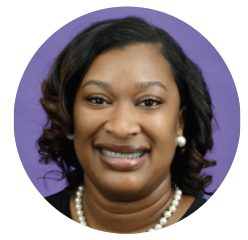 Sh’Niqua Alford
Sh’Niqua Alford
Assistant Professor of Professional Practice and Assistant Director of Field Education, Social Work Department, Harris College of Nursing & Health Sciences
Generalist social work practice is grounded in the liberal arts, defined by a competency-based framework of knowledge, values and skills that are key to our profession. The courses I teach provide students with an opportunity to engage critically, enhance cultural awareness and demonstrate empathy and compassion through brave space discussion, as well as through integration and direct application in the field.
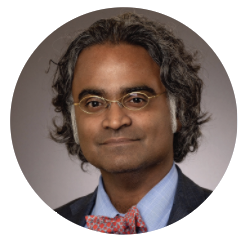 Mohanakrishnan Sathyamoorthy
Mohanakrishnan Sathyamoorthy
Professor and Chair of Internal Medicine,
TCU and UNTHSC School of Medicine
Our curriculum is a novel one that seeks to emphasize a comprehensive scientific, data-driven, curiosity-inspired medical education augmented by a deep commitment to nurturing humanistic qualities that will help us develop truly empathetic scholars in medicine. You may surmise from this our emphasis on the liberal arts in our approach to medical education. Our students will learn about diverse cultural perspectives, sociological factors that affect a patient’s health and wellness, and how best to express thoughts compassionately through the spoken, visual and written word. This is central to our goals as a faculty in this school of medicine. Our formal coursework and unique curriculum emphasize these concepts in a longitudinal fashion throughout the four years a student is with us. We hope and expect that compassionate, empathetic and well-rounded physician scholars will emerge from this effort.
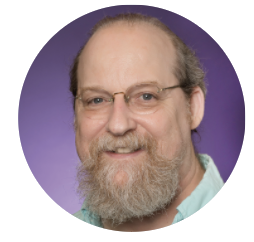 Dick Lane
Dick Lane
Associate Professor and Director of the School of Art, College of Fine Arts
Art courses are constantly merging liberal arts into our classes. It’s a mistake to think that art classes simply teach only techniques and skills. The important conversations we have in critiques cover a wide range of topics from cultural norms, philosophy, psychology, criminal justice and on and on. While the physical skill sets are important, we are far more interested in the whole idea of what art can be and not just the surface of it.
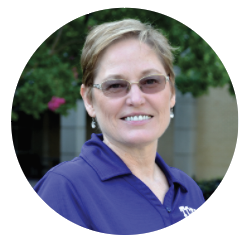 Mary Harris Stanford
Mary Harris Stanford
Professor and Chair of Accounting and Duncan Fellow, Neeley School of Business
Like physicians and lawyers, accountants are licensed professionals. A characteristic of all professionals is a duty to serve; the accountant’s duty is to the public via the honest measurement and communication of financial information. However, accountants also work for corporations, private businesses, nonprofits and governments in roles such as executive decision-makers, consultants and auditors who ensure regulatory compliance and financial market stability. The liberal arts build a foundation of critical thinking, ethics and oral and written communication. We build on this foundation and on subjects like psychology and political science to train students to relate to clients, as well as to solve complex, cross-disciplinary problems.
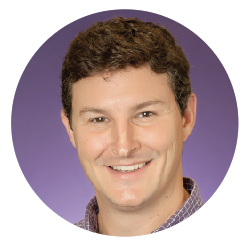 Michael Faggella-Luby
Michael Faggella-Luby
Professor and Director of the Alice Neeley Special Education Research and Service Institute, College of Education
For me, liberal arts education, the oldest program of study in higher education, involves learning how to think critically across multiple fields of study such as English, philosophy, mathematics or political science. Such higher-order thinking is born in the examination of universal principles across these fields while seeking to draw transdisciplinary conclusions. In my classes preparing future educators, TCU students learn the science and the art of backward planning from the universal principles of each discipline: learning the principles, how to unpack them with K-12 students, anticipating areas of difficulty and then enhancing instruction so that all students might seek these ideas for themselves.
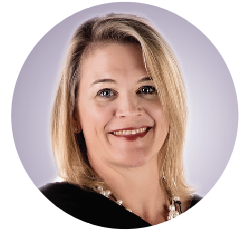 Stacy Landreth Grau
Stacy Landreth Grau
Director of IdeaFactory, School of Interdisciplinary Studies
Professor of Entrepreneurship & Innovation Practice, Neeley School of Business
Liberal arts are extremely important to professional education. I teach design thinking, which is creative problem-solving in specific contexts. I feel that liberal arts really help critical thinking skills — connecting convergent and divergent thinking to arrive at breakthrough ideas. I like to combine that with ways to work on collaboration and communication skills and find it is a powerful combination. Bottom line: To be competitive in the world today, you need to have a well-rounded skill set, and liberal arts really help to ground that.
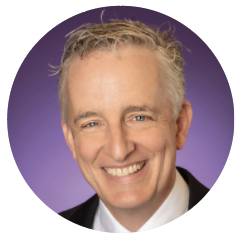 Eric Simanek
Eric Simanek
Robert A. Welch Professor of Chemistry,
College of Science & Engineering
Facts have relocated. They are no longer secreted away in libraries, encyclopedias or textbooks. Facts are ubiquitous. Higher education is no longer about disseminating facts but instead navigating the space between them. This space is multidimensional. Interdisciplinary. My course Whiskey: Science and History seeks to explore this space using lenses from STEM and the liberal arts. The goal is to reveal both the complexity and interconnectedness of all things — how advances in distillation are linked to women’s rights, the treatment of immigrants and the nature of what makes an acceptable form of protest. The liberal arts are more critical now than ever.
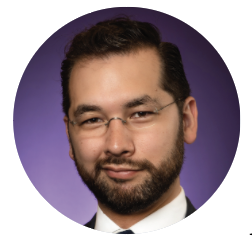 Mikio Akagi
Mikio Akagi
Assistant Professor of the History and Philosophy of Science, John V. Roach Honors College
As a philosopher of science, I create courses that draw from many disciplinary perspectives. For example, in my honors colloquium on Disease, Disorder and Disability, we read physicians, psychiatrists, psychologists, biologists, sociologists, historians and philosophers, and we consider the perspectives of disabled people in their own words. The flavor of class discussion is mostly philosophical, focused on clear reasoning and critical thinking, but my honors students bring insights from their various major disciplines.

Your comments are welcome
Comments
Related reading:
Alumni, Features
Master of Liberal Arts Program Encourages Critical Thinking
The degree gives graduate students a chance to take lifelong learning and leading a step beyond.
Alumni, Features
What Kind of Job Can You Get with a Liberal Arts Degree?
After this class, liberal arts majors see the opportunities.
Features
Comics in the Classroom Spark Creative Thinking
The medium itself breaks boundaries, and this idea transfers to course subject matter.